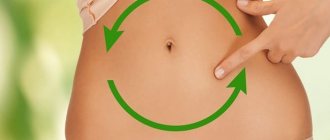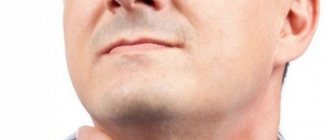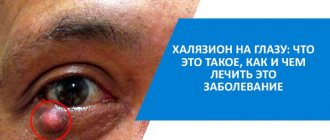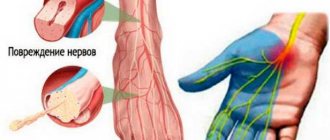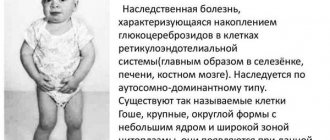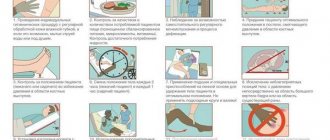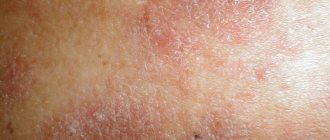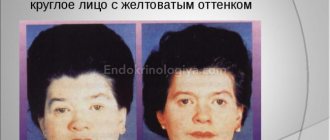When discussing the symptoms of autoimmune thyroiditis, most people usually refer to the traditional symptoms of thyroid hormone deficiency—fatigue, sensitivity to cold, hair loss, constipation, and others. AIT interferes with the thyroid's ability to produce the hormones the body needs to maintain normal metabolism (namely, the conversion of oxygen and calories into energy) until the associated inflammation of the thyroid gland causes hypothyroidism.
Statistics
The incidence of the disease, according to various sources, varies from 1 to 4%; in the structure of thyroid pathology, autoimmune damage accounts for every 5–6th case. Women are much more likely (4–15 times) to suffer from autoimmune thyroiditis.
The average age of onset of a detailed clinical picture, indicated in the sources, varies significantly: according to some sources, it is 40–50 years, according to others – 60 and older, some authors indicate the age of 25–35 years. It is reliably known that in children the disease occurs extremely rarely, in 0.1–1% of cases.
Reasons for development
The main cause of this type of thyroiditis, as was established by the Japanese scientist Hakaru Hashimoto, is the body’s specific immune response. Most often, the immune system protects the human body from negative external factors, viruses and infections, producing special antibodies for these purposes. In some cases, due to an autoimmune failure, the immune system can attack the cells of its own body, including thyroid cells, which leads to their destruction.
According to experts, the main reason for this type of immune response is genetic predisposition, but there are other risk factors that can lead to the development of thyroiditis:
- infectious diseases: it is during this period that the body’s immunity may fail, so in a child, for example, chronic autoimmune thyroiditis can be observed against the background of a previous infectious disease;
- other autoimmune diseases: it is assumed that the patient’s body is characterized by this kind of reaction to its own cells;
- Stressful situations can also cause problems with the immune system;
- poor ecology in the place of permanent residence, including radioactive radiation: contributes to a general weakening of the body, its susceptibility to infections, which again can trigger a reaction of the immune system to its own tissues;
- taking a certain set of medications that can affect the production of thyroid hormones;
- lack or, on the contrary, excess of iodine in food, and therefore in the patient’s body;
- smoking;
- possible previous operations on the thyroid gland or chronic inflammatory processes in the nasopharynx.
Among other things, another risk factor is considered to be the gender and age of the patient: for example, women suffer from autoimmune thyroiditis several times more often than men, and the average age of patients ranges from 30 to 60 years, although in some cases the disease can be diagnosed in women under 30 years, as well as in children and adolescents.
Mechanism of autoimmune action
In this case, the process of self-destruction of the gland by the body is quite complex, but the general scheme of the processes occurring in the body has been largely studied:
- To distinguish between self and foreign cells, the immune system can distinguish between the proteins that make up different cells in the body. To recognize the protein, the immune system has a macrophage cell. It contacts cells, recognizing their proteins.
- Information about the origin of the cell is delivered by the macrophage to T lymphocytes. The latter can be so-called T-suppressors and T-helpers. Suppressors prohibit the attack of the cell, helpers allow it. Essentially, this is a specific database that allows an attack without recognizing such a cell in the body, or prohibits it if it recognizes such a previously known cell.
- If the helper T cells allow the attack, the cells and macrophages that attack the gland begin to be released. The attack involves contact with the cell, including with the help of interferons, active oxygen and interleukins.
- Antibodies are produced by the B lymphocyte. Antibodies, unlike active oxygen and other attacking agents, are specific formations directed and developed to attack a specific type of cell.
- Once antibodies bind to antigens—the cells being attacked—an aggressive immune system called the complement system is launched.
Speaking specifically about autoimmune thyroiditis, scientists have concluded that the disease is associated with a disruption of the macrophage in protein recognition. The gland cell protein is recognized as foreign, and the process described above is launched.
Violation of such recognition may be genetically determined, or may be represented by low activity of suppressors designed to stop aggressive immune systems.
Antibodies produced by B lymphocytes attack thyroid peroxidase, microsomes and thyroglobulin. These antibodies are the subjects of laboratory research when a patient is diagnosed with a disease. The gland cells become unable to produce hormones and a hormonal deficiency occurs.
Classification
Autoimmune thyroiditis can be divided into several diseases, although they all have the same nature:
1. Chronic thyroiditis (also known as lymphomatous thyroiditis, previously called autoimmune Hashimoto's thyroiditis or Hashimoto's goiter) develops due to a sharp increase in antibodies and a special form of lymphocytes (T-lymphocytes), which begin to destroy thyroid cells. As a result, the thyroid gland sharply reduces the amount of hormones produced. This phenomenon is called hypothyroidism by doctors. The disease has a clearly expressed genetic form, and the patient’s relatives very often have diabetes mellitus and various forms of thyroid disease.
2. Postpartum thyroiditis is the best studied due to the fact that this disease occurs more often than others. The disease occurs due to overload of the female body during pregnancy, as well as in the case of an existing predisposition. It is this relationship that leads to the fact that postpartum thyroiditis turns into destructive autoimmune thyroiditis.
3. Painless (silent) thyroiditis is similar to postpartum thyroiditis, but the reason for its appearance in patients has not yet been identified.
4. Cytokine-induced thyroiditis can occur in patients with hepatitis C or with a blood disorder if these diseases are treated with interferon.
Based on clinical manifestations and depending on changes in the size of the thyroid gland, autoimmune thyroiditis is divided into the following forms:
- Latent – when there are no clinical symptoms, but immunological signs appear. In this form of the disease, the thyroid gland is either normal size or slightly enlarged. Its functions are not impaired and no compaction is observed in the body of the gland;
- Hypertrophic – when the functions of the thyroid gland are disrupted, and its size increases, forming a goiter. If the increase in the size of the gland is uniform throughout the entire volume, then this is a diffuse form of the disease. If nodules form in the body of the gland, the disease is called a nodular form. However, there are frequent cases of simultaneous combination of both of these forms;
- Atrophic – when the size of the thyroid gland is normal or even reduced, but the amount of hormones produced is sharply reduced. This picture of the disease is common for older people, and for young people - only in case of their radiation exposure.
Forms of the disease
Thyroiditis is distinguished by the severity of symptoms and the physical condition of the thyroid gland itself.
- Hypertrophic form - there is an enlargement of the organ, possibly local or general enlargement of the gland. Local increases are called nodes. This form often begins with thyrotoxicosis, but later, with adequate treatment, the function of the organ can be restored.
- Atrophic form - the gland does not increase in size, but its function is significantly reduced, leading to hypothyroidism. This type occurs with prolonged contact with radioactive radiation in low doses, as well as in the elderly and children.
By and large, the form of the disease does not greatly affect how the disease will be treated. Only nodular formations can cause concern. If nodules are detected, consultation with an oncologist is necessary to prevent the node cells from degenerating into malignant ones.
Otherwise, nodal connections in most cases do not need to be removed unless a malignant nature is detected, and treatment can be carried out with medication, without surgery, if there are no other reasons for surgery.
Symptoms of autoimmune thyroiditis
It should be noted right away that autoimmune thyroiditis often occurs without pronounced symptoms and is detected only during an examination of the thyroid gland.
At the onset of the disease, in some cases throughout life, the normal function of the thyroid gland may remain, the so-called euthyroidism - a condition when the thyroid gland produces a normal amount of hormones. This condition is not dangerous and is normal; it only requires further dynamic monitoring.
Symptoms of the disease occur if, as a result of the destruction of thyroid cells, a decrease in its function occurs - hypothyroidism. Often, at the very beginning of autoimmune thyroiditis, there is an increase in the function of the thyroid gland; it produces more hormones than normal. This condition is called thyrotoxicosis. Thyrotoxicosis may persist or may develop into hypothyroidism.
The symptoms of hypothyroidism and thyrotoxicosis are different.
Symptoms of hypothyroidism are:
Weakness, memory loss, apathy, depression, low mood, pale, dry and cold skin, rough skin on the palms and elbows, slow speech, swelling of the face, eyelids, overweight or obesity, chilliness, cold intolerance, decreased sweating, increased, swelling of the tongue, increased hair loss, brittle nails, swelling in the legs, hoarseness, nervousness, menstrual irregularities, constipation, joint pain.
Symptoms are often nonspecific, occur in a large number of people, and may not be associated with thyroid dysfunction. However, if you have most of the following symptoms, your thyroid hormones may need to be tested.
Symptoms of thyrotoxicosis are:
Increased irritability, weight loss, mood swings, tearfulness, rapid heartbeat, feeling of interruptions in the heart, increased blood pressure, diarrhea (loose stools), weakness, tendency to fractures (bone tissue strength decreases), feeling of heat, intolerance to hot climates, sweating, increased hair loss, menstrual irregularities, decreased libido (sexual desire).
Is the disease curable?
With timely initiation of therapy, it is possible to prevent the destruction of the gland by autoantibodies. Satisfactory performance of patients is maintained for 10-15 years. Under the influence of provoking factors, relapses of AIT cannot be excluded.
If Hashimoto's thyroiditis was caused by pregnancy, the risk of exacerbation in the next pregnancy will be 70-75%. In 25% of patients the disease becomes chronic. As a result of massive death of thyroid cells, AIT is complicated by persistent hypothyroidism.
Diagnostics
It is quite difficult to diagnose AIT before the onset of hypothyroidism. Endocrinologists make the diagnosis of autoimmune thyroiditis based on the clinical picture and laboratory data. The presence of autoimmune disorders in other family members confirms the likelihood of autoimmune thyroiditis.
Laboratory tests for autoimmune thyroiditis include:
- general blood test - an increase in the number of lymphocytes is determined
- immunogram - characterized by the presence of antibodies to thyroglobulin, thyroid peroxidase, second colloid antigen, antibodies to thyroid hormones of the thyroid gland
- determination of T3 and T4 (total and free), TSH level in blood serum. An increased TSH level with a normal T4 level indicates subclinical hypothyroidism, an increased TSH level with a reduced T4 concentration indicates clinical hypothyroidism
- Ultrasound of the thyroid gland - shows an increase or decrease in the size of the gland, changes in structure. The results of this study serve to complement the clinical picture and other laboratory results.
- fine-needle biopsy of the thyroid gland - allows you to identify a large number of lymphocytes and other cells characteristic of autoimmune thyroiditis. It is used when there is evidence of possible malignant degeneration of a thyroid nodule.
The diagnostic criteria for autoimmune thyroiditis are:
- increased levels of circulating antibodies to the thyroid gland (AT-TPO);
- detection of hypoechogenicity of the thyroid gland by ultrasound;
- signs of primary hypothyroidism.
In the absence of at least one of these criteria, the diagnosis of autoimmune thyroiditis is only probabilistic. Since an increase in the level of AT-TPO, or the hypoechogenicity of the thyroid gland by itself does not prove autoimmune thyroiditis, this does not allow establishing an accurate diagnosis. Treatment is indicated for the patient only in the hypothyroid phase, therefore, as a rule, there is no urgent need to make a diagnosis in the euthyroid phase.
How to prepare and take the test
To carry out enzyme immunoassay, blood is used, which is taken from the cubital vein. The biomaterial is collected in the morning, when the concentration of AT in the blood reaches its maximum values. Preliminary preparation for the study prevents errors in the results.
When preparing for the procedure you should:
- exclude excessive physical activity the day before the examination;
- stop taking hormonal medications 3 days before the test;
- Avoid breakfast and smoking on the day of blood donation.
Before the examination, the patient must inform the doctor about taking any medications. On the eve of donating blood, you should not drink alcohol or tonic drinks - strong tea, coffee, energy drinks.
Elevated antibodies do not always indicate autoimmune disorders. A change in the concentration of antibodies in the blood is provoked by:
- thyroid injuries;
- acute inflammation;
- oral contraceptives.
In this regard, doctors advise temporarily postponing the examination in case of exacerbation of infectious diseases, rehabilitation after surgery on the gland.
The worst thing you can expect: possible complications of thyroiditis
Different stages of thyroiditis have different complications. Thus, the hyperthyroid stage can be complicated by arrhythmia, heart failure, and even provoke myocardial infarction.
Hypothyroidism can cause:
- infertility;
- recurrent miscarriage;
- congenital hypothyroidism in a newborn child;
- dementia;
- atherosclerosis;
- depression;
- myxedema, which looks like intolerance to the slightest cold, constant drowsiness. If in this state you administer sedatives, get severe stress, or get an infectious disease, you can provoke a hypothyroid coma.
Fortunately, this condition responds well to treatment and, if you take drugs in a dose adjusted to the level of hormones and AT-TPO, you can not feel the presence of the disease for a long time.
Why is thyroiditis dangerous during pregnancy?
The thyroid gland weighs only fifteen grams, but its influence on the processes occurring in the body is enormous. Hormones produced by the thyroid gland are involved in metabolism, the production of certain vitamins, and many vital processes.
Autoimmune thyroiditis provokes disruption of the thyroid gland in two thirds of cases. And pregnancy very often gives impetus to the worsening of the disease. With thyroiditis, the thyroid gland produces less hormones than it should. This disease is classified as an autoimmune disease. Thyroiditis differs from other thyroid diseases in that even the use of medications most often does not help increase the production of hormones. And these hormones are absolutely necessary for both the mother’s body and the baby’s developing body. Thyroiditis can cause disturbances in the formation of the nervous system in the unborn child.
During pregnancy, do not be negligent about a disease such as thyroiditis. The fact is that it is especially dangerous in the first trimester, when thyroiditis can provoke a miscarriage. According to research, forty-eight percent of women suffering from thyroiditis had a threatened miscarriage during pregnancy, and twelve and a half percent suffered from severe forms of toxicosis in the early stages.
Lifestyle with autoimmune hypothyroidism
People with hypothyroidism have a very slow metabolism, so they quickly gain weight. Due to disturbances in mineral metabolism, swelling of the limbs and face is common. Therefore, when treating the thyroid gland, you need to make lifestyle changes.
During periods of acute inflammation, the glands refuse to consume salt, as it retains fluid in the body. Limit fast food, processed foods and canned vegetables.
To eliminate the symptoms of AIT, you should:
- exercise;
- follow a diet;
- to refuse from bad habits.
To stimulate the synthesis of T3 and T4, iodine-containing foods are introduced into the diet - sea fish, shrimp, kelp, apples, pork, greens.
How to treat thyroiditis?
Treatment of the pathology is completely medicinal and depends on the stage at which autoimmune thyroiditis is. Treatment is prescribed regardless of age and does not stop even in case of pregnancy, of course, if there are necessary indications. The goal of therapy is to maintain thyroid hormones at their physiological level (monitoring indicators every six months, the first control should be carried out after 1.5-2 months).
At the stage of euthyroidism, drug treatment is not carried out.
Regarding the treatment tactics of the thyrotoxic stage, the decision is left to the doctor. Typically, thyreostatics like Mercazolil are not prescribed. Therapy is symptomatic: for tachycardia, beta blockers are used (Anaprilin, Nebivolol, Atenolol); in case of severe psycho-emotional excitability, sedatives are prescribed. In the case of a thyrotoxic crisis, treatment in a hospital is carried out using injections of glucocorticoid hormones (Prednisolone, Dexamethasone). The same drugs are used when autoimmune thyroiditis is combined with subacute thyroiditis, but therapy is performed on an outpatient basis.
In the stage of hypothyroidism, synthetic T4 (thyroxine) called “L-thyroxine” or “Euthyrox” and, if there is a lack of triiodothyronine, its laboratory-created analogues are prescribed. The dosage of thyroxine for adults is 1.4-1.7 mcg/kg of weight, for children – up to 4 mcg/kg.
Thyroxine is prescribed to children if there is an increase in TSH and a normal or decreased T4 level, if the gland is enlarged by 30 percent or more of the age norm. If it is enlarged, its structure is heterogeneous, and AT-TPO is absent, iodine is prescribed in the form of potassium iodide at a dosage of 200 mcg/day.
When a diagnosis of autoimmune thyroiditis is made to a person living in an area with iodine deficiency, physiological doses of iodine are used: 100-200 mcg/day.
L-thyroxine is prescribed to pregnant women if TSH is more than 4 mU/l. If they only have AT-TPO and TSH is less than 2 mU/L, thyroxine is not used, but TSH levels are monitored every trimester. In the presence of AT-TPO and TSH 2-4 mU/l, L-thyroxine is needed in prophylactic doses.
If the thyroiditis is nodular, in which cancer cannot be excluded, or if the thyroid gland compresses the organs of the neck, significantly complicating breathing, surgical treatment is performed.
Treatment of AIT
Treatment of autoimmune thyroiditis is carried out throughout the patient’s life. This tactic significantly slows down the progression of the disease and has a positive effect on the duration and quality of life of the patient.
Unfortunately, to this day there is no specific treatment for autoimmune thyroiditis. The main focus remains symptomatic treatment.
- For hyperthyroidism, drugs that inhibit thyroid function are prescribed - thiamazole, mercazolil, carbimazole.
- To treat tachycardia, high blood pressure, and tremor, beta-blockers are prescribed. They reduce heart rate, lower blood pressure, and eliminate tremors in the body.
- To eliminate inflammation and reduce the production of antibodies, non-steroidal anti-inflammatory drugs are prescribed - diclofenac, nimesulide, meloxicam.
- If autoimmune thyroiditis is accompanied by subacute thyroiditis, glucocorticoids are prescribed - prednisolone, dexamethasone.
- For hypothyroidism, L-thyroxine, a synthetic analogue of thyroid hormones, is prescribed as replacement therapy.
- If there is a hypertrophic form that compresses the internal organs, surgical treatment is indicated.
- Immunocorrectors, vitamins, and adaptogens are prescribed as accompanying therapy.
Treatment of thyrotoxic crisis or coma is carried out in the intensive care unit and is aimed at eliminating the manifestations of thyrotoxicosis, restoring water and electrolyte balance, normalizing body temperature, regulating blood pressure and heart rate. The use of thyrostatic agents in this case is undesirable.
Nutrition
The diet should be normal in caloric content (energy value of at least 1500 kcal), and it is better if you calculate it according to Mary Chaumont: (weight * 25) minus 200 kcal.
The amount of protein should be increased to 3 g per kg of body weight, and saturated fats and easily digestible carbohydrates should be limited. You need to eat every 3 hours.
What you can eat:
- vegetable dishes;
- baked red fish;
- fish fat;
- liver: cod, pork, beef;
- pasta;
- dairy products;
- cheese;
- legumes;
- eggs;
- butter;
- porridge;
- bread.
Salted, fried, spicy and smoked foods, alcohol and seasonings are excluded. Water – no more than 1.5 l/day.
You need fasting - once a week or 10 days - days on juices and fruits.
Folk remedies
Treatment with folk remedies for autoimmune thyroiditis is contraindicated. With this disease, you should generally refrain from any self-medication. Only an experienced doctor can prescribe adequate treatment in this case, and it must be carried out under the mandatory systematic supervision of tests.
Immunomodulators and immunostimulants are not recommended for use in autoimmune thyroiditis. It is very important to follow some principles of proper healthy eating, namely: eat more fruits and vegetables. During illness, as well as during periods of stress, emotional and physical stress, it is recommended to take microelements and vitamins containing the necessary microelements for the body (vitamin preparations such as Supradin, Centrum, Vitrum, etc.)
Forecast for life
Normal well-being and performance in patients can sometimes be maintained for 15 years or more, despite short-term exacerbations of the disease.
Autoimmune thyroiditis and increased levels of antibodies can be considered as a factor in the increased risk of hypothyroidism in the future, that is, a decrease in the amount of hormones produced by the gland.
In the case of postpartum thyroiditis, the risk of recurrence after another pregnancy is 70%. However, about 25–30% of women subsequently develop chronic autoimmune thyroiditis with the transition to persistent hypothyroidism.
Symptoms
Discomfort in the throat is one of the signs of autoimmune thyroiditis
As mentioned above, the initial stages (euthyroid and subclinical phases) do not have a clearly defined clinical picture. Very rarely during these periods, an increase in the organ in the form of a goiter is possible.
In this case, a person feels discomfort in the neck (pressure or lump), he quickly gets tired, the body weakens and mild joint pain may be observed. Most often, symptoms appear in the first few years, when the disease is just beginning to develop.
The signs are caused by ongoing processes that correspond to the indicated phases. As the tissue structure is destroyed, the disease lingers in the euthyroid phase, after which it progresses to persistent hypothyroidism.
Postpartum AIT manifests itself as mild thyrotoxicosis 4 months after birth. A woman usually becomes more tired and loses weight.
It is not often that the symptoms are more pronounced (sweating, tachycardia, feeling of fever, muscle tremors and other obvious signs). The hypothyroid phase begins at the end of the fifth month after the birth of the child; not often this can be associated with the development of a depressive postpartum state.
Note. Painless thyroiditis manifests itself as barely noticeable, almost asymptomatic thyrotoxicosis.
Prevention
It is currently impossible to prevent the manifestation of acute or subacute thyroiditis using specific preventive measures.
Experts advise following general rules to help avoid a number of diseases. Regular hardening, timely therapy for diseases of the ears, throat, nose, teeth, and the use of sufficient vitamins are important. A person who has had cases of autoimmune thyroiditis in his family should be very careful about his own health and consult a doctor at the first suspicion.
To avoid relapse of the disease, it is important to carefully follow all doctor’s instructions.
Hypothyroidism Thyroid cyst: symptoms and treatment Thyrotoxicosis of the thyroid gland: what is it and how to treat it? Hyperthyroidism Autoimmune hepatitis Nodular goiter
What is a goiter?
In medicine, goiter refers to all benign neoplasms in the thyroid gland, both detectable by touch and already visible. A goiter is a knot in the thickness of unchanged tissue or an increase in the entire volume of the gland. With nodules it will be nodular or multinodular , and simply an increase - diffuse and a mixture of them in the form of a diffuse-nodular goiter .
On average, a diffuse version of goiter is found in every third person, but in different regions of Russia, benign lesions of the gland of various types - nodes or enlargement are found in 5% - 70% of residents, and the vast majority are women. It is not known why women are more susceptible to the disease; a direct connection between the level of production of thyroid hormones and the activity of the reproductive organs has been identified, and the leading cause of goiter is also explainable.

